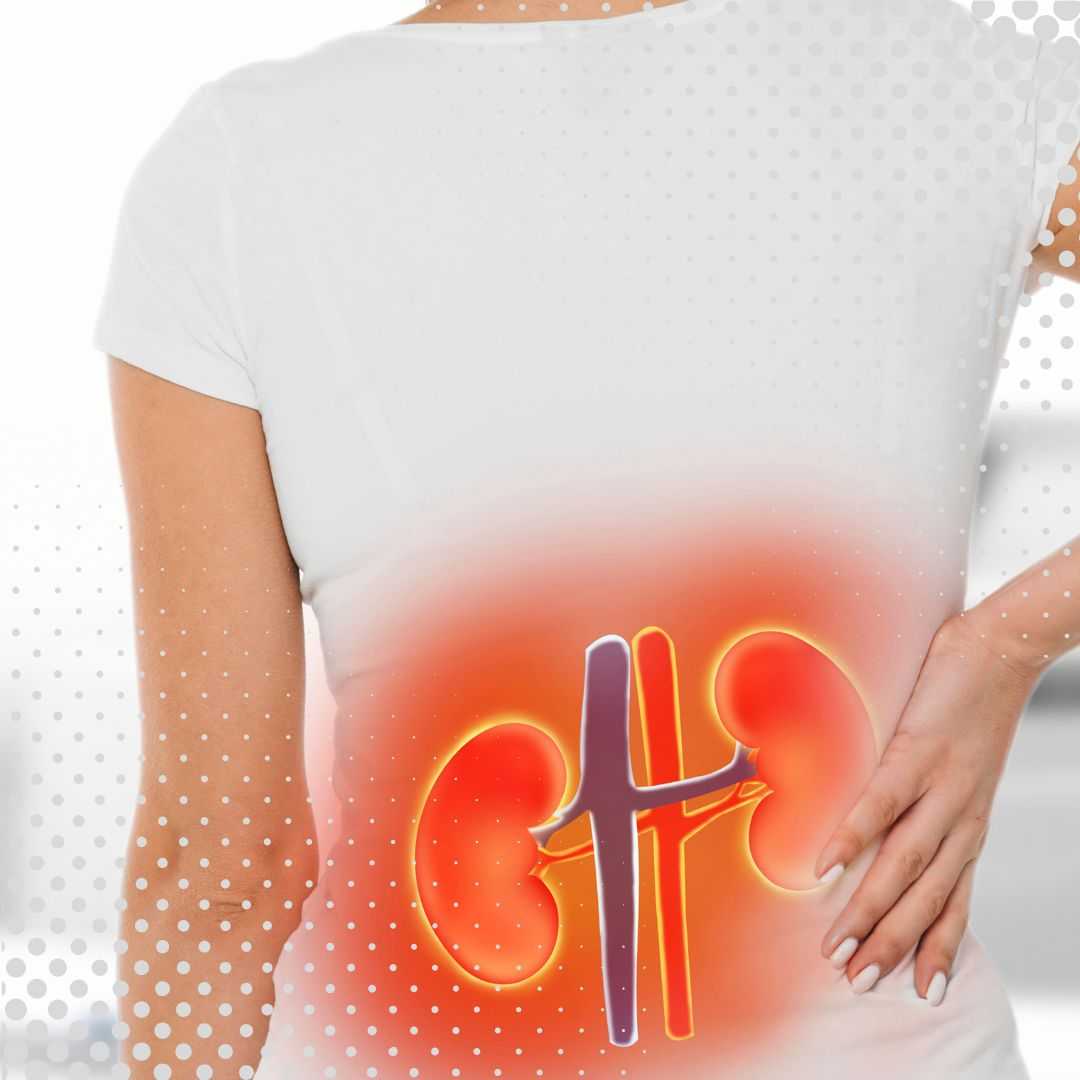
Reclaim Your Life: Exploring Disc Hernia Surgery Options Abroad
Living with a herniated disc can be debilitating, turning simple daily activities into agonizing challenges. The relentless pain, often radiating down an arm or leg, known as sciatica, can severely impact your quality of life, making it difficult to work, sleep, or even enjoy time with loved ones. If conservative treatments like physical therapy, medication, and injections haven't provided lasting relief, disc hernia surgery might be the pathway to reclaiming your comfort and mobility.
A herniated disc occurs when the soft, jelly-like center of a spinal disc pushes through a tear in its tougher outer layer, often compressing nearby nerves. This common condition can stem from aging, injury, or even poor posture. While many cases resolve with non-surgical approaches, some individuals experience persistent, severe symptoms that necessitate surgical intervention.
For those seeking effective and affordable solutions, looking beyond local borders for disc hernia surgery is becoming an increasingly popular and viable option. Medical tourism offers access to world-class spinal surgeons, state-of-the-art facilities, and significantly lower costs compared to Western countries, allowing you to focus on your recovery without the added financial strain. This guide will explore everything you need to know about disc hernia surgery, from understanding your symptoms and treatment options to navigating the journey of having your procedure abroad.
What are the Symptoms of a Herniated Disc?
A herniated disc often manifests as discomfort ranging from a dull ache to sharp, searing pain. The specific symptoms depend on the location of the herniation (cervical, thoracic, or lumbar spine) and which nerves are affected. Many patients search for "what does a herniated disc feel like" or "sciatica symptoms" online to understand their condition better. Here’s what to look out for:
- Localized Pain: Persistent pain in the neck or lower back, often aggravated by movement, coughing, or sneezing.
- Radiating Pain (Sciatica): If the herniation is in the lower back, pain may shoot down your buttock, leg, and even into your foot. This "nerve pain back leg" is a hallmark of sciatica. For cervical herniations, pain can radiate into the shoulder, arm, hand, or fingers.
- Numbness or Tingling: A sensation of pins and needles or numbness in the area served by the affected nerve.
- Muscle Weakness: Weakness in the muscles controlled by the affected nerve, which can lead to difficulty lifting objects, walking, or maintaining balance.
- Loss of Reflexes: In some cases, nerve compression can lead to diminished or absent reflexes.
It’s important to note that some individuals may have a herniated disc without experiencing any symptoms, while others may have severe, debilitating pain that impacts every aspect of their lives.
What Causes a Disc Herniation?
Understanding "what causes a disc herniation" can help in prevention and treatment. Intervertebral discs act as shock absorbers between your vertebrae. Over time, these discs can degenerate, making them more susceptible to herniation. Here are the primary causes and risk factors:
- Age-Related Degeneration: As we age, our discs lose water content, becoming less flexible and more prone to tearing. This is a natural part of the aging process.
- Trauma or Injury: A sudden strain or twist, especially while lifting heavy objects incorrectly, can cause a disc to rupture. Many people search for "how do discs get damaged" and often find this is a common reason.
- Repetitive Stress: Occupations requiring repetitive lifting, bending, or twisting can put excessive strain on the spine over time.
- Obesity: Excess body weight places increased stress on the spinal discs, particularly in the lower back.
- Smoking: Nicotine can reduce oxygen supply to the discs, accelerating degeneration.
- Genetics: Some individuals may be genetically predisposed to disc problems.
- Sedentary Lifestyle: Lack of regular exercise can weaken back muscles, reducing support for the spine.
These factors contribute to the outer fibrous ring (annulus fibrosus) of the disc becoming weak or torn, allowing the inner gel-like substance (nucleus pulposus) to bulge out or rupture.
What are the Types of Disc Hernia Surgery?
When conservative treatments fail, surgery aims to relieve pressure on the spinal nerves. There are several "types of spine surgery" for herniated discs, ranging from minimally invasive to more extensive procedures:
- Microdiscectomy: This is the most common and often preferred surgical procedure for a herniated lumbar disc causing sciatica. It's a "minimally invasive back surgery" performed through a small incision using a microscope or endoscope. The surgeon removes the herniated portion of the disc that is pressing on the nerve.
- Laminectomy/Discectomy: In some cases, a small part of the vertebral bone (lamina) is removed (laminectomy) to create more space and allow the surgeon to access and remove the herniated disc material (discectomy). This can be open or minimally invasive.
- Artificial Disc Replacement: For certain patients with a single-level herniated disc in the neck or lower back, the damaged disc may be removed and replaced with an artificial disc designed to mimic the natural disc's movement. This preserves motion at the surgical segment.
- Spinal Fusion: If the disc degeneration is severe and causes instability, or if other procedures fail, the surgeon might remove the disc and fuse the adjacent vertebrae together using bone grafts and hardware (screws, rods). This eliminates movement at that segment.
The choice of procedure depends on factors such as the location and size of the herniation, symptoms, and overall spinal health. Your surgeon will recommend the best option after a thorough evaluation.
Am I a Candidate for Disc Hernia Surgery? (Eligibility)
Deciding "who needs back surgery" is a significant step. Surgery is generally considered after exhausting non-surgical options, which typically include physical therapy, medication, injections, and lifestyle modifications, for at least 6-12 weeks. Key indicators that you might be a candidate for surgery include:
- Persistent, Severe Pain: Especially if it radiates down your arm or leg and significantly interferes with your daily life, despite conservative treatment.
- Progressive Neurological Deficits: Increasing numbness, weakness, or difficulty walking or standing, indicating ongoing nerve compression.
- Loss of Bowel or Bladder Control (Cauda Equina Syndrome): This is a rare but severe complication of a herniated disc and requires immediate emergency surgery.
- Imaging Confirmation: MRI or CT scans clearly show a herniated disc that correlates with your symptoms.
- Overall Good Health: You are generally healthy enough to undergo surgery and anesthesia, with no major contraindications.
Your spine specialist will evaluate your medical history, symptoms, physical examination, and imaging results to determine if and "when is back surgery necessary" for your specific condition.
Recovery Time and Expectations After Disc Surgery
Understanding "how long to recover from back surgery" is crucial for planning. Recovery time varies depending on the type of surgery, individual health, and adherence to post-operative instructions. For a microdiscectomy, which is common, the recovery timeline often looks like this:
- Hospital Stay: Often 1-2 days, sometimes even outpatient.
- Immediate Post-Op (First Few Weeks): Pain relief is often immediate for radiating nerve pain, though some incisional pain and muscle soreness are normal. Restrictions on bending, lifting, and twisting are critical. Light walking is encouraged.
- Weeks 2-6: Introduction to physical therapy to strengthen core muscles, improve flexibility, and learn proper body mechanics. Gradual increase in activity levels.
- Months 2-6: Continued physical therapy and rehabilitation. Most patients can return to light duty work within 2-4 weeks and more strenuous activities by 3-6 months.
- Full Recovery: While significant improvement is seen within weeks, full recovery and return to all activities can take up to 6 months or more.
Following your surgeon's and physical therapist's guidelines is paramount for a successful outcome and preventing re-herniation. Patience and consistency in rehabilitation are key.
Risks and Side Effects of Disc Hernia Surgery
While disc hernia surgery can be life-changing, it's essential to be aware of potential risks, as with any surgical procedure. Many patients ask, "is disc surgery safe?" and generally, for selected patients, it is. However, "complications of back surgery" can occur:
- Infection: At the surgical site or in the spinal column.
- Bleeding: Internal bleeding during or after surgery.
- Nerve Damage: Though rare, damage to spinal nerves can lead to increased pain, numbness, or weakness.
- Dural Tear (CSF Leak): The dura is the membrane surrounding the spinal cord. A tear can cause a leak of cerebrospinal fluid, requiring further repair.
- Recurrent Herniation: The same disc can re-herniate at the same level. The risk is typically low (5-10%).
- Anesthesia Risks: Reactions to anesthesia, blood clots, or breathing problems.
- Failed Back Surgery Syndrome (FBSS): A term for chronic back or leg pain that persists or develops after spine surgery.
- Adjacent Segment Disease: Increased stress on discs above or below the surgical site, potentially leading to future problems.
Your surgeon will discuss these risks in detail and take all necessary precautions to minimize them. Choosing an experienced surgeon and accredited facility significantly reduces these risks.
Worldwide Cost Comparison for Disc Hernia Surgery
The cost of disc hernia surgery is a primary driver for medical tourism. The price can vary dramatically based on the country, clinic, surgeon's fees, type of procedure, and duration of hospital stay. Here’s a general comparison (prices are estimates and can change):
| Country | Estimated Cost (USD) | Notes |
|---|---|---|
| United States | $20,000 - $50,000+ | High costs, but widely available. |
| United Kingdom | $15,000 - $30,000+ | Private care costs. NHS wait times can be long. |
| Germany | $12,000 - $25,000+ | Reputable for high-quality care. |
| Turkey | $5,000 - $10,000 | Popular medical tourism destination, excellent value. |
| India | $4,000 - $9,000 | Highly competitive prices, advanced facilities. |
| Mexico | $6,000 - $12,000 | Convenient for US patients, growing medical tourism. |
| Thailand | $7,000 - $14,000 | Known for excellent hospitality and medical care. |
These figures demonstrate why "affordable back surgery overseas" is so appealing. The savings can be substantial, often covering travel and accommodation costs, while still being significantly cheaper than domestic options.
Why Consider Disc Hernia Surgery Abroad?
Choosing "medical tourism for spine" procedures like disc hernia surgery offers compelling advantages, especially for those facing high costs or long waits in their home countries:
- Significant Cost Savings: As seen in the table above, the primary driver for many is the substantial reduction in treatment costs, making life-changing surgery accessible.
- Reduced Wait Times: In many countries with public healthcare systems (like the UK or Canada), wait lists for elective spine surgeries can be months or even years long, prolonging suffering. Abroad, appointments and procedures can often be scheduled much faster.
- Access to Advanced Techniques and Specialists: Many international clinics specialize in spine surgery, offering cutting-edge technology and highly experienced surgeons who perform a high volume of these procedures.
- Privacy and Anonymity: Some patients prefer the discretion of undergoing medical procedures away from their local community.
- Integrated Care Packages: Many clinics offer all-inclusive packages covering surgery, hospital stay, rehabilitation, accommodation, and sometimes even travel coordination.
- Opportunity for a Medical Vacation: Combine your recovery in a new environment, often a beautiful setting, which can aid in stress reduction and healing.
For those searching for "affordable back surgery overseas," these benefits provide a powerful incentive to explore options beyond their borders.
Which Countries Offer the Best Value for Disc Hernia Surgery?
When selecting a destination for disc hernia surgery, "best countries for spine surgery" often refers to those balancing high-quality care with affordability. Based on patient reviews, accreditation, and cost efficiency, certain countries stand out:
- Turkey: Known for its modern, JCI-accredited hospitals, highly trained surgeons, and competitive pricing. Istanbul and Ankara are major medical tourism hubs.
- India: A global leader in medical tourism, offering state-of-the-art facilities, English-speaking staff, and some of the lowest costs for complex surgeries. Cities like Delhi, Mumbai, and Chennai are prominent.
- Mexico: Especially popular with North American patients due to proximity. Cities like Tijuana, Cancun, and Guadalajara boast quality clinics and experienced surgeons, often with US training.
- Thailand: Offers a unique combination of top-tier medical care, luxurious recovery facilities, and renowned hospitality. Bangkok and Phuket are popular choices.
- South Korea: While slightly higher in cost than some other Asian destinations, South Korea is known for its technological advancements and highly specialized spine centers.
These countries have invested heavily in their healthcare infrastructure, attracting international patients by delivering excellent medical outcomes and a superior patient experience at a fraction of the cost.
What to Expect When Traveling for Disc Hernia Surgery?
Embarking on "traveling for medical treatment" requires careful planning. Here's a general roadmap of what to expect:
- Initial Consultation & Planning: You'll typically start with remote consultations (video or phone) with the international clinic. They'll review your medical records, MRI/CT scans, and provide a treatment plan and cost estimate.
- Travel Arrangements: Once you decide, a medical tourism facilitator (like PlacidWay) or the clinic's international patient department will help with flights, accommodation (pre- and post-op), and local transportation.
- Arrival & Pre-Op: Upon arrival, you'll have in-person consultations with your surgeon, undergo comprehensive pre-operative tests (blood work, additional imaging, physical exam) to ensure you're fit for surgery.
- The Procedure & Hospital Stay: The surgery itself will be performed. Post-operatively, you'll stay in the hospital for 1-3 days, depending on the procedure, for initial recovery and monitoring.
- Post-Op Recovery Abroad: After discharge, you'll typically spend 1-2 weeks in local accommodation for initial recovery, follow-up appointments, and often, early-stage physical therapy. This ensures you're stable enough for your flight home.
- Return Home: You'll receive detailed instructions for ongoing recovery and rehabilitation, which you’ll continue with your local doctor or physical therapist.
Organizations like PlacidWay specialize in "planning back surgery abroad," simplifying this complex process for patients.
How to Ensure Safety and Quality of Care Abroad?
Ensuring "safe medical procedures abroad" is paramount. While cost savings are appealing, quality should never be compromised. Here’s how to ensure you receive top-tier care:
- Accreditation: Look for international accreditations like Joint Commission International (JCI). This signifies that a hospital meets stringent international standards for patient safety and quality of care.
- Surgeon Qualifications & Experience: Verify your surgeon’s credentials, board certifications, and experience specific to disc hernia surgery. Don't hesitate to ask about their success rates and the volume of similar procedures they perform. Searching for "finding good doctors overseas" should lead you to these considerations.
- Facility Standards: Research the clinic's technology, hygiene standards, and patient support services. Are they equipped with modern operating rooms and diagnostic tools?
- Patient Testimonials & Reviews: Read reviews and success stories from previous international patients. Look for consistent positive feedback regarding care, communication, and outcomes.
- Clear Communication: Ensure there are no language barriers. Many international hospitals offer multilingual staff or translation services.
- Medical Tourism Facilitator: Partner with a reputable medical tourism company like PlacidWay. They vet clinics, assist with planning, and provide a layer of advocacy for your safety and satisfaction.
By being diligent and asking the right questions, you can confidently pursue high-quality care abroad.
What are Patient Success Stories from Abroad?
Countless individuals have found renewed hope and relief through disc hernia surgery performed abroad. These "patient success stories" often highlight not just the physical recovery, but also the overall positive experience:
- John, from Canada: Faced a year-long wait for a microdiscectomy. He traveled to Turkey, had his surgery within weeks, and reported immediate relief from sciatica that had plagued him for months. He lauded the personalized care and the modern hospital facilities.
- Maria, from the UK: Struggled with severe neck pain and arm numbness due to a cervical disc herniation. She chose India for an artificial disc replacement, citing the expertise of the neurosurgeon and the fraction of the cost compared to private options at home. She returned home pain-free and with restored arm function.
- David, from the USA: A self-employed graphic designer, the high deductible and out-of-pocket costs for a lumbar discectomy in the US were prohibitive. He found a highly-rated clinic in Mexico, saving over 70% on his procedure. His recovery was smooth, and he was back to work pain-free, expressing immense satisfaction with the care and the financial relief.
These stories underscore the reality that high-quality, effective disc hernia surgery is accessible and affordable globally, helping patients get back to their lives faster and without financial burden.
Take the Next Step with PlacidWay
Ready to explore treatment options abroad? Discover top clinics, compare prices, and get a free quote tailored to your needs with PlacidWay.
Affordable Spine Surgery | Best Spine Surgery Abroad



-Package-in-Kuala-Lumpur,-Malaysia-by-FirstCell.jpg)






Share this listing